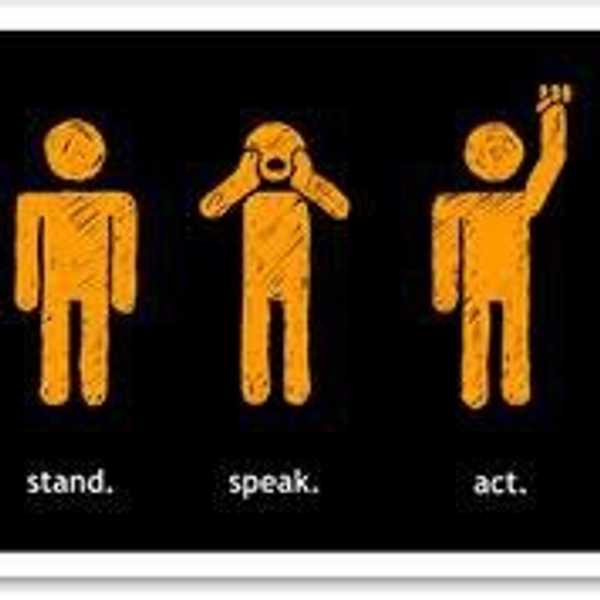Since I have been writing about poverty recently I thought I would take a look at what someone from a different perspective then me has to say about poverty, and the way we currently approach poverty in the US. So I turned to The Heritage Foundation. For anyone who doesn't know, The Heritage Foundation states is mission is "to formulate and promote conservative public policies based on the principles of free enterprise, limited government, individual freedom, traditional American values, and a strong national defense." So they aren't usually my go-to for information, but I think that is exactly why it would be interesting to dive into one of their articles, and see what I thought, if I learned anything, and in general, just what they had to say.
I decided to pick their report "Understanding the Hidden $1.1 Trillion Welfare System and How to Reform It". Right off of the bat they focus on the price tag of welfare. Now although the social worker in me responds with thinking that no price is too high when we're talking about helping people, the pragmatist in me can really appreciate this. Although I wouldn't go as far as they do in saying that "the aggregate cost of this assistance is largely unknown because the spending is fragmented into myriad programs" I would agree that the current fragmentation is a real problem. For one thing it can lead to the government, religious groups, and other non-profits (these three entities being the makeup of our social security, along with family members) having overlapping services, leaving some areas to be overcrowded with certain services, and lacking in other ways.
While talking about the cost of programs, and how much they aid families the report made the argument that the amount of people in poverty is too high, since if you include the aid they receive, they are no longer in poverty. They use the example of a single mother of two, whose earnings from working full time at minimum-wage, and receiving aid would come to $47,385, with an effective hourly rate of $22.78 per hour. Another look at how much aid single mothers received from the Cato Institute stated that "The state with the highest total value of welfare benefits was Hawaii, at $49,175. The lowest was Mississippi, at $16,984. Welfare packages in only 10 states, plus Washington, D.C., exceeded Grothman's threshold of $35,000. Hawaii may be distorted by the high cost of living, researchers said." And The Economic Policy Institute estimated that a single parent of two would have a cost of living in St. Loius to be $39,589 annually. In the end, how much aid someone receives varies wildly state to state, and programs like the housing voucher (which makes up $11,820 of The Heritage Foundation's $47,385) only serve "about 25 percent of eligible households". I know where I live there is a 2 year waiting list to get a housing voucher, and I understand it to be frozen, so people cannot currently get on the list.
Since the welfare system varies so much state to state, and although aid is theoretically available, it is often out of reach for many the numbers The Heritage Foundation puts forward of a single-mother of two living off of $47,385 is inaccurate.
After talking about costs the article then goes into what I would consider to be more of the crux of its argument, "most existing welfare programs either fail to encourage or actively discourage efforts toward self-support through work and marriage. As a result, they are inefficient, unnecessarily costly, and ultimately harmful to recipients." They continue with saying that "Today, unwed childbearing, with its consequent growth of single-parent homes, is the single most important cause of child poverty" and "The second major cause of child poverty is lack of parental work." They propose that "The War on Poverty created a destructive feedback loop: Welfare promoted the decline of marriage, thereby generating a need for more welfare."
The problem I see at first is the fact that welfare causing a decline in marriage sounds very hard to prove, and seeing as the burden of proof is on them, I won't comment on this idea any more until they present more information. Now the notion that single-parent homes are correlated with child poverty is a topic I can engage with.
So what is going on here? Well, "single parents, overall, earn less than married parents. It comes down to jobs, really. More than 80 percent of moms with spouses are employed, but only 60 percent of single mothers are in full-time jobs -- perhaps due to the difficulty of managing children alone. … there is much more research to do, but this much we know: Single parents work less and earn less because they are the sole caretakers for their children." Important to note is that "mothers who live near their mothers or mothers-in-law participate in the labor force significantly more than mothers who do not live close." Given that we are talking about families which need financial assistance, we can either pay the moms to watch their kids, or we can pay to have their kids watched so they can go to work, expecting them to pay for childcare before they have the chance to begin working, or rising up to the point where their income can cover childcare doesn't make sense.
The Heritage Foundation's report is longer than I usually write, and so I will be reviewing the next part of their article in a future essay. So far, although there are definitely disagreements I have, I think for anyone on my side it's interesting to see the perspective of a group which has the price tag of everything written in every line, and I hope if you are someone who enjoys The Heritage Foundation, you had something you were able to take away from my article about their views on Welfare and Poverty.



















